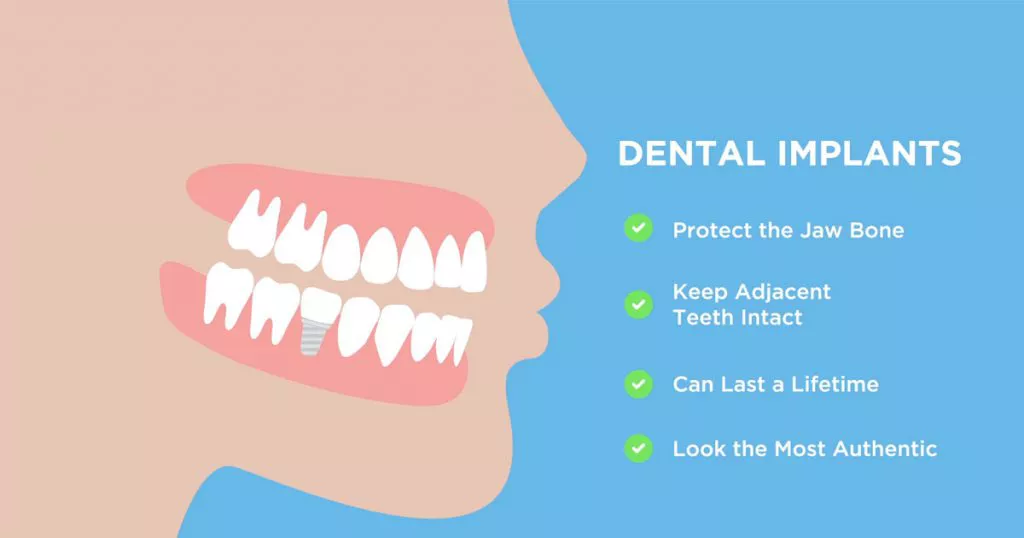Dental implants have revolutionized the field of dentistry, providing a long-term solution for individuals with missing teeth. However, there is often a question regarding their safety, especially for elderly patients. As age can bring about changes in oral health and overall health status, it’s crucial to assess the safety and efficacy of dental implants in older adults. This article delves into the topic of whether dental implants are safe for the elderly, exploring various factors such as bone density, overall health conditions, and potential risks and benefits.
Understanding Dental Implants
Before delving into the safety aspects, let’s first understand what dental implants are and how they work. Dental implants are artificial tooth roots made of titanium that are surgically placed into the jawbone. They serve as a sturdy foundation for replacement teeth such as crowns, bridges, or dentures. The process of getting dental implants typically involves several stages, including initial consultation, implant placement surgery, healing period, and attachment of the prosthetic tooth.
SEE ALSO: 9 Best Ways to Care for Dental Implants
Advantages of Dental Implants
Dental implants offer numerous advantages, which contribute to their popularity among patients of all ages. Some key benefits include:
Improved Oral Health: Implants help prevent bone loss and maintain the integrity of surrounding teeth.
Enhanced Functionality: They restore biting and chewing capabilities, allowing for the enjoyment of a wide range of foods.
Natural Appearance: Implants look and feel like natural teeth, enhancing aesthetics and self-confidence.
Longevity: With proper care, dental implants can last for decades, providing a durable and reliable tooth replacement solution.
Age-Related Considerations
When it comes to the elderly population, several factors need to be considered before determining the safety of dental implants:
Bone Density: As individuals age, bone density may decrease, particularly in the jawbone. Adequate bone density is essential for successful implant placement and integration.
Overall Health: Elderly individuals may have underlying health conditions such as diabetes, cardiovascular disease, or osteoporosis, which can impact the healing process and implant success.
Medications: Some medications commonly taken by the elderly may affect oral health or the ability to undergo surgery, requiring careful evaluation by healthcare professionals.
Oral Health Status: Existing oral health issues such as gum disease or inadequate dental hygiene can affect the outcomes of dental implant treatment.
Safety of Dental Implants in The Elderly
Numerous studies and clinical observations support the safety and efficacy of dental implants in elderly patients. Here are some key points to consider:
Bone Quality and Quantity: While bone density may decrease with age, advances in implant technology and surgical techniques have made it possible to successfully place implants even in patients with compromised bone quality.
Techniques such as bone grafting can enhance bone volume in areas where it is insufficient.
Health Screening: Prior to implant placement, thorough health screening is essential to assess the patient’s overall health status, identify any contraindications, and optimize conditions for successful implantation.
Collaborative Approach: Dental implant treatment for elderly patients often involves collaboration between dental professionals, physicians, and specialists to ensure comprehensive care and address any underlying health concerns.
Customized Treatment Plans: Each patient’s case is unique, and treatment plans should be tailored to individual needs, taking into account factors such as oral health, medical history, and personal preferences.
Post-Operative Care: Proper post-operative care and follow-up appointments are crucial for monitoring healing, addressing any complications promptly, and ensuring long-term implant success.
Potential Risks And Complications
While dental implants are generally safe, like any surgical procedure, there are potential risks and complications to be aware of, especially in elderly patients. These may include:
Infection: Risk of infection at the surgical site, which can be mitigated with strict adherence to oral hygiene protocols and post-operative care instructions.
Implant Failure: Factors such as poor bone integration, excessive forces on the implant, or systemic health issues may contribute to implant failure.
Bone Resorption: Over time, some degree of bone resorption (bone loss) around the implant site is normal, but excessive bone loss can compromise implant stability.
Soft Tissue Complications: Issues such as gum recession or peri-implantitis (inflammation around the implant) may occur and require prompt intervention.
Conclusion
In conclusion, dental implants can be a safe and effective tooth replacement option for elderly individuals, provided that thorough assessment, careful planning, and appropriate post-operative care are implemented. Advances in implant technology and treatment protocols have expanded the possibilities for implant success even in older patients. However, it’s essential for healthcare providers to consider each patient’s unique circumstances and collaborate to ensure optimal outcomes and patient satisfaction.

